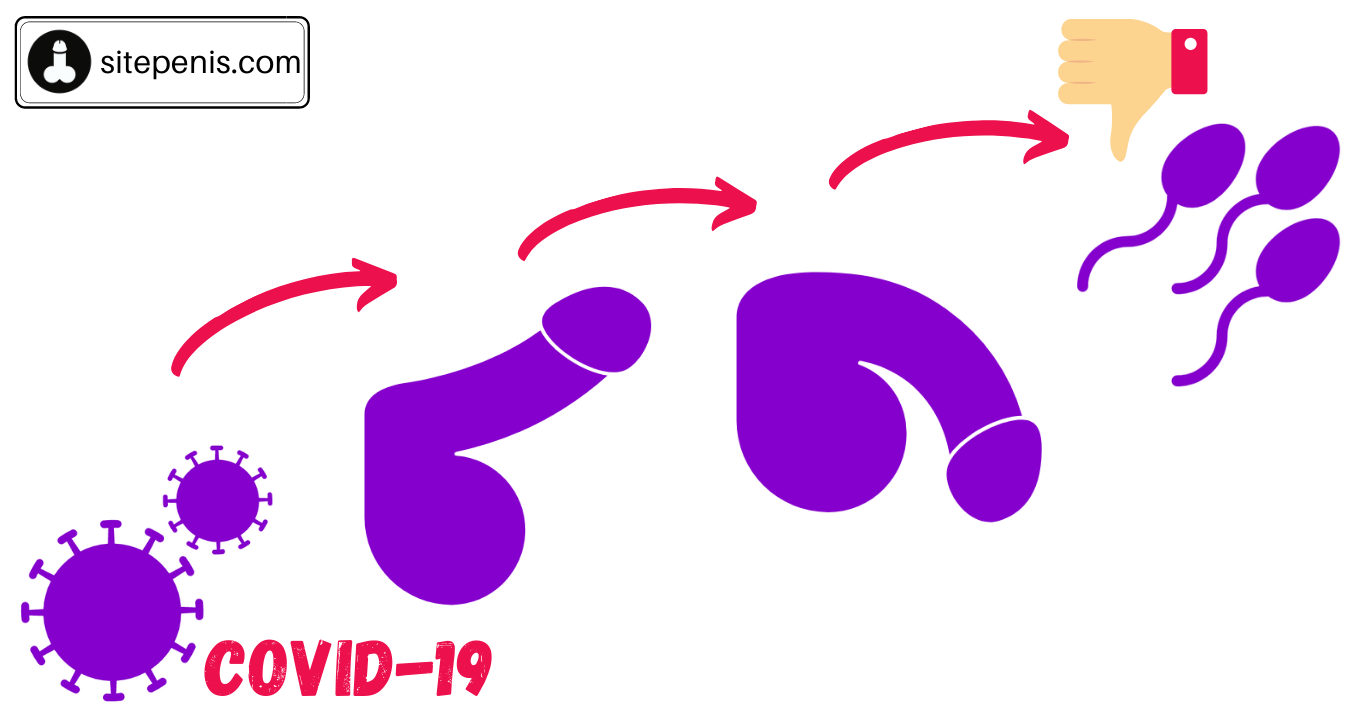COVID-19: Erectile Dysfunction and Penis Shrinking Could Be Sequelae
Men now have another compelling reason to get vaccinated against COVID-19. Doctors suspect that infection with the new coronavirus causes sexual impotence in some men.

The disease is known to damage blood vessels, and the vessels that supply the penile tissue leaving the penis erect are not free from damage.
Using an electron microscope, researchers find particles of the coronavirus in penile tissue samples from COVID-19 patients, who reported erectile dysfunction after acquiring the infection six to eight months earlier.
In a later study, published in the World Journal of Men's Health, researchers pointed to evidence of similar damage to blood vessels in the penis of COVID-19 patients, compared to two men with erectile dysfunction who had never been infected with the coronavirus.
"We found that the virus affects the blood vessels that supply the penis, causing erectile dysfunction," said researcher Ranjith Ramasamy, director of the reproductive urology program at the University of Miami Miller School of Medicine. "The blood vessels malfunction and cannot supply enough blood to enter the penis and promote an erection."
Ramasamy likens this to lung, kidney and brain damage found in COVID-19 patients. "We think the penis can also be affected in a similar way," said Ramasamy. "We do not believe that this illness is a temporary effect. We believe it could be permanent."

The study focused on two recovered COVID-19 patients who underwent penile surgery to correct erectile dysfunction. Both men had normal erectile function before the infections. One of the men became seriously ill with COVID-19 and spent weeks in the hospital before recovering, but he had no chronic health issues. The other man had a relatively mild case of COVID-19 but suffered from clogged arteries and hypertension before becoming infected. Both continued to have COVID-19 particles in their penile tissues, as well as evidence of endothelial dysfunction, a condition in which the lining of small blood vessels does not function properly.
For comparison, two men without COVID-19 who also underwent surgery to correct erectile dysfunction showed no evidence of the same type of damage to the blood vessels in the penis.
"I am confident that in the next six months to a year, we will better understand the true prevalence of erectile dysfunction among COVID-19 positive men."
It makes sense that the infection could affect men in this way, given the virus' ability to cause inflammation and damage to blood vessels, said Dr. Ash Tewari, chair of urology at the Icahn School of Medicine at Mount Sinai in New York City. . But, Tewari warned that men should not panic until more research is done.
Ramasamy urged infected patients, now suffering from erectile dysfunction, to seek medical attention.
Does COVID-19 cause low testosterone and infertility?
It is not yet known whether coronavirus infection can cause infertility. COVID-19 is a new disease that has been leaving sequels without conclusive explanations by science. But like other viral infections that affect the testicles, the coronavirus does too.
Testosterone, which is crucial for erections and sperm production, is not immune to the effects of COVID-19. A study suggests that the infection can reduce testosterone levels and fertility in men.
The virus enters cells with the help of a protein called angiotensin-converting enzyme 2 (ACE2), which is prevalent in the testes. The virus uses ACE2 to infect the testes, where testosterone and sperm are produced. Therefore, it is suggested that the virus, in addition to affecting erections, can also decrease fertility.
In 2020, two studies on the subject had already been published, one conducted in Italy and the other in Germany. Both found lower levels of testosterone in men who had been infected with the coronavirus.
A more recent study, published in May 2021, found that men hospitalized with severe coronavirus infection had much lower testosterone levels compared to non-serious patients. The study authors mentioned that they did not have access to the patients' hormone levels before they became ill. Thus, despite the strong relationship between COVID-19 and low testosterone levels in men, it is not possible to say whether these patients already had low testosterone before or if the hormone dropped dramatically with the progression of the disease.
Does COVID-19 decrease penis size?
An online survey of 3,762 patients infected with the new coronavirus found that 3% of men reported a change to smaller penis size.
However, the research was based on the patient's perception and no medical method was used to measure the size of the penis, therefore, it is impossible to conclude that such a result is consistent with reality.
The fact that the coronavirus damages the blood vessels and leads to poor blood supply to the penile tissue, may be the cause of the perception of the decrease in the size of the penis, since a penis with impaired erection appears to be smaller, visually speaking.
However, it is impossible to draw any conclusions about this, as COVID-19 is a new disease and science still does not have all the answers.
The solution
The best thing to do is continue to maintain protection protocols and of course, get vaccinated against COVID-19.
For men who had the disease and began to perceive a detriment in sexual performance, it is advisable that they seek a urologist as soon as possible.
References:
- Zhang, Haibo, et al. "Angiotensin-converting enzyme 2 (ACE2) as a SARS-CoV-2 receptor: molecular mechanisms and potential therapeutic target." Intensive care medicine 46.4 (2020): 586-590.
- Rastrelli, Giulia, et al. "Low testosterone levels predict clinical adverse outcomes in SARS-CoV-2 pneumonia patients." Andrology 9.1 (2021): 88-98.
- Schroeder, Maria, et al. "The majority of male patients with COVID-19 present low testosterone levels on admission to Intensive Care in Hamburg, Germany: a retrospective cohort study." (2020).
- Dhindsa, Sandeep, et al. "Association of circulating sex hormones with inflammation and disease severity in patients with COVID-19." JAMA network open 4.5 (2021): e2111398-e2111398.



















